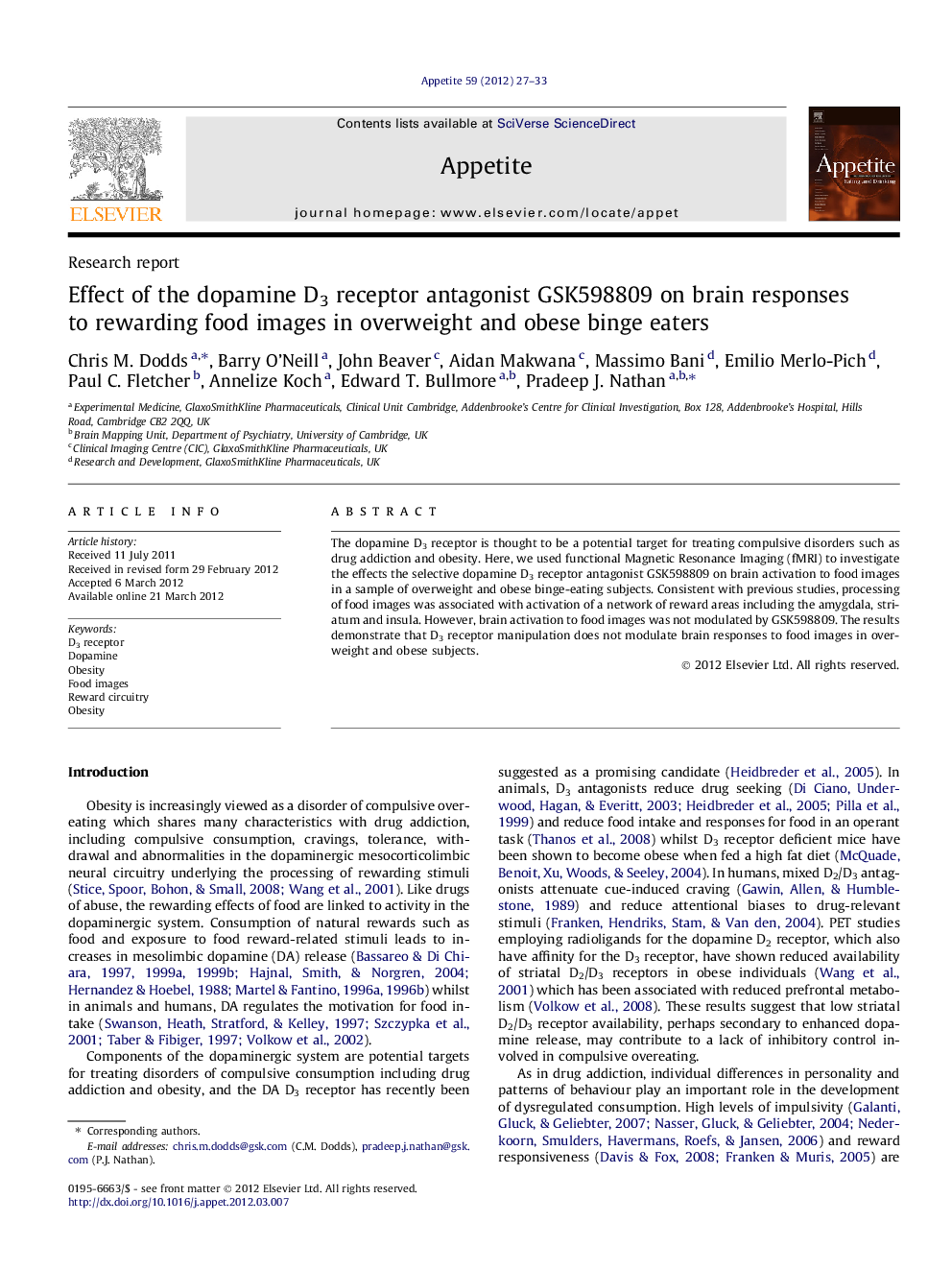| Article ID | Journal | Published Year | Pages | File Type |
|---|---|---|---|---|
| 940135 | Appetite | 2012 | 7 Pages |
The dopamine D3 receptor is thought to be a potential target for treating compulsive disorders such as drug addiction and obesity. Here, we used functional Magnetic Resonance Imaging (fMRI) to investigate the effects the selective dopamine D3 receptor antagonist GSK598809 on brain activation to food images in a sample of overweight and obese binge-eating subjects. Consistent with previous studies, processing of food images was associated with activation of a network of reward areas including the amygdala, striatum and insula. However, brain activation to food images was not modulated by GSK598809. The results demonstrate that D3 receptor manipulation does not modulate brain responses to food images in overweight and obese subjects.
► Food cues cause an increase in brain reward circuitry activation in overweight and obese subjects. ► Increases in activation were observed in several regions including the insula, striatum and amygdala. ► The selective dopamine D3 receptor antagonist has no effect on brain responses to food cues in any of these regions.
